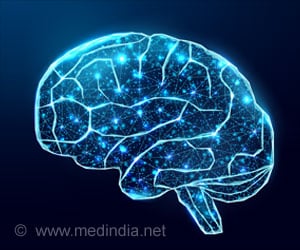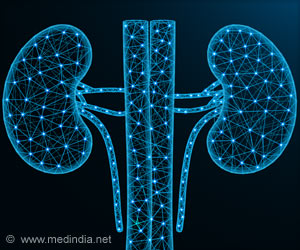- Adolescents with lower mental ability scores are at a higher risk of early-onset stroke
- This increased risk remains significant even after adjusting for diabetes and other factors
- Early cognitive assessments could help identify individuals at higher risk for stroke prevention
A lower level of mental ability throughout adolescence may be associated with a threefold increase in the chance of having a stroke before the age of 50, according to a study published online in the Journal of Epidemiology & Community Health (1). The discovered relationships remained true even after accounting for existing diabetes and limiting the age of a first stroke to 40, prompting the researchers to conclude that more complete assessments beyond established stroke risk factors are now required to prevent disability and mortality.
Recent research reveals that strokes among people under the age of 50 are on the rise. According to the study, around half of all stroke survivors would experience long-term physical and psychological difficulties.
Mental Ability Linked with Metabolic Health
Lower levels of mental capacity in childhood and adolescence, including focus, problem-solving, and learning abilities, have been linked to an increased risk of developing cardiovascular and metabolic disorders later in life. The researchers do, however, point out that the findings are inconsistent.
To strengthen the evidence foundation, they wanted to see if adolescent mental ability was connected with an increased risk of early-onset stroke in a nationally representative sample of 1.7 million young Israelis. Before beginning military service, 16-20-year-old Israelis are thoroughly evaluated to determine their readiness, and this study includes all individuals screened between 1987 and 2012. Aside from weight, blood pressure, and existing diabetes, other characteristics considered were educational achievement, socioeconomic status, and mental capacity.
This last category comprises examinations to assess verbal comprehension and execution; verbal abstraction and categorization (word grouping); mathematical ability, concentration, and conceptual thinking; nonverbal abstract reasoning; and visual-spatial problem solving. The study participants’ results were then linked to the Israeli national stroke database, for which required reporting began in 2014, until the end of 2018, when the first recorded stroke or death occurred, whichever came first.
The final analysis includes 1,741,345 people, and 738,720 (42%) women. Out of the total, 12% (312,769) were rated as having a high degree of mental capacity, 70% (1,220,514) as medium, and 18% (208.062) as low.
Lower Mental Capacity Increases Risk of Cardiovascular Diseases
Compared to those with high mental ability scores, those on the other end of the scale were more likely to be overweight or obese (17% vs 12%), less likely to have completed secondary school education (82% vs 99%), and more likely to have lived in a socially and economically deprived neighbourhood (35% vs 19%)- all risk factors for cardiovascular disease.
Advertisement
Between 2014 and 2018, 908 strokes were recorded, with 767 caused by a blood clot (ischemic) and 141 by a brain hemorrhage (intracerebral hemorrhage). The average age at first stroke was 39.5 (highest age 50). And 45 people died as a result (5% of all stroke cases), with nearly two-thirds (62%) passing away within 30 days of the occurrence. Those with poor to medium mental ability had a higher incidence of both types of stroke, particularly ischemic stroke.
After controlling for any confounding factors, those with low mental capacity were more than 2.5 times more likely to have a stroke before the age of 50 than those with a high level. In contrast, those with a medium level were 78% more likely.
Advertisement
Of the 767 instances of ischemic stroke, 311 (41%) happened before the age of 40. After controlling for potentially influential variables, this risk was nearly twofold (96% higher) among those with a medium mental capacity and more than three times higher among those with a poor level in their adolescence.
The risk increased in unison with the mental capacity score, so that for every 1 unit fall in the score (range of 1 to 9), the risk increased by 33%. However, when the study was limited to mental ability categories, no such relationships were found for a stroke caused by a brain bleed. These relationships were true even after more in-depth analysis, which included taking into account current diabetes and limiting the age of first stroke to 40.
This is an observational study, so cause and effect cannot be established. The researchers however recognize that their findings have limitations, including a lack of information on lifestyle factors such as smoking, physical activity, and food; higher education; and numerous potentially relevant social determinants of health.
They nevertheless write: “Without risk factor intervention in early adulthood, stroke risk accumulates.” They suggest that “cognitive function may serve as a means of stratifying individuals at greater risk for stroke and intervention via possible mediators such as health illiteracy, education, and health-related behaviors.” Individuals with reduced cognitive function may benefit from early social and health support to reduce their heightened risk.”
References:
- Cognitive function in adolescence and the risk of early-onset stroke
(Bardugo A, Bendor CD, Libruder C, et al
Cognitive function in adolescence and the risk of early-onset stroke
J Epidemiol Community Health Published Online First: 27 June 2024. doi: 10.1136/jech-2024-222114)
Source-Medindia



